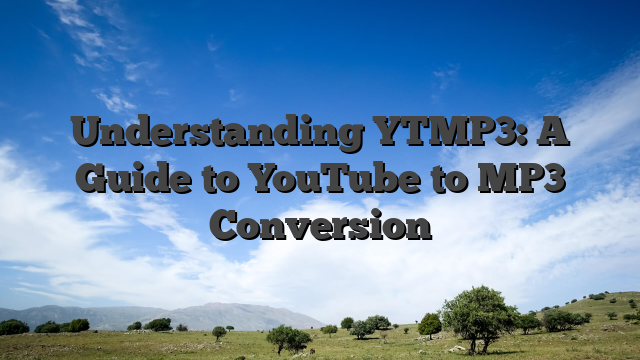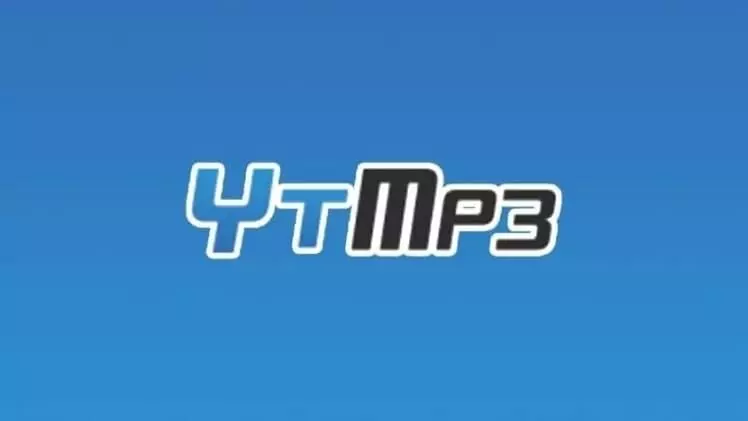Introduction
In the digital age, music and video content are more accessible than ever before. One of the most popular ways users consume content offline is by converting YouTube videos into MP3 files. This is where tools like YTMP3 come into play. YTMP3 is a widely used online converter that allows users to extract audio from YouTube videos and download them in MP3 format. But what exactly is Ytmp3, how does it work, and what are the legal and ethical considerations surrounding its use? Let’s explore.
What is YTMP3?
YTMP3 is an online tool (also known as YTMP3.cc or similar domains) that converts YouTube videos into downloadable MP3 files. The service is free, requires no registration, and operates on a simple interface: users paste a YouTube URL into the conversion box, click a button, and shortly receive a link to download the audio.
This tool is especially popular among users who want to listen to content offline — whether it’s music, podcasts, lectures, or interviews — without relying on a constant internet connection or streaming platforms.
How Does YTMP3 Work?
YTMP3 functions by extracting the audio track from a YouTube video and encoding it into an MP3 format. Here’s a basic outline of the process:
-
User Inputs URL: The user pastes the URL of a YouTube video into the input box on the YTMP3 site.
-
Video is Processed: The tool fetches the video and begins conversion by stripping out the audio component.
-
MP3 Conversion: The audio is encoded into an MP3 file format.
-
Download is Provided: After processing, the user is given a link to download the MP3 file to their device.
The entire process typically takes less than a minute, depending on the length of the video and server load.
Legal and Ethical Considerations
While the functionality of YTMP3 is appealing, it brings up important legal and ethical questions. Most YouTube videos are protected by copyright law. Downloading and redistributing copyrighted material without the permission of the creator or rights holder can violate YouTube’s terms of service and potentially copyright laws in many countries.
-
Legal Risk: Downloading copyrighted material without a license is generally illegal unless the content is in the public domain or has a Creative Commons license permitting such use.
-
Platform Violation: Using services like YTMP3 typically breaches YouTube’s terms, which prohibit the downloading of content except via approved means (e.g., YouTube Premium).
-
Content Creator Impact: When users bypass ads and direct streaming, creators lose out on potential revenue, which can harm content sustainability.
Therefore, YTMP3 is best used for downloading content that is royalty-free or where you have the creator’s explicit permission.
Pros and Cons of Using YTMP3
Pros:
-
Free and Easy to Use: No account required; straightforward interface.
-
Convenient Offline Access: Great for listening to content without internet.
-
No Software Installation Needed: Entirely web-based.
Cons:
-
Legal Gray Area: Potentially violates copyright law.
-
Low Audio Quality: Compression may reduce sound quality compared to official releases.
-
Risk of Malware: Some sites posing as YTMP3 may contain intrusive ads or malicious software.
Alternatives to YTMP3
For users looking for legal alternatives, there are several options:
-
YouTube Premium: Allows legal downloading for offline use.
-
Streaming Platforms: Services like Spotify, Apple Music, and Amazon Music offer extensive libraries for offline listening.
-
Creative Commons Sites: Platforms like Jamendo and Free Music Archive offer free, legal music downloads.
Conclusion
YTMP3 is a powerful and convenient tool that reflects how modern users want to consume content — quickly, freely, and offline. However, it’s essential to use such tools responsibly and ethically, with an understanding of copyright laws and respect for content creators. Whenever possible, opt for legal alternatives that support the people who create the content you enjoy.





